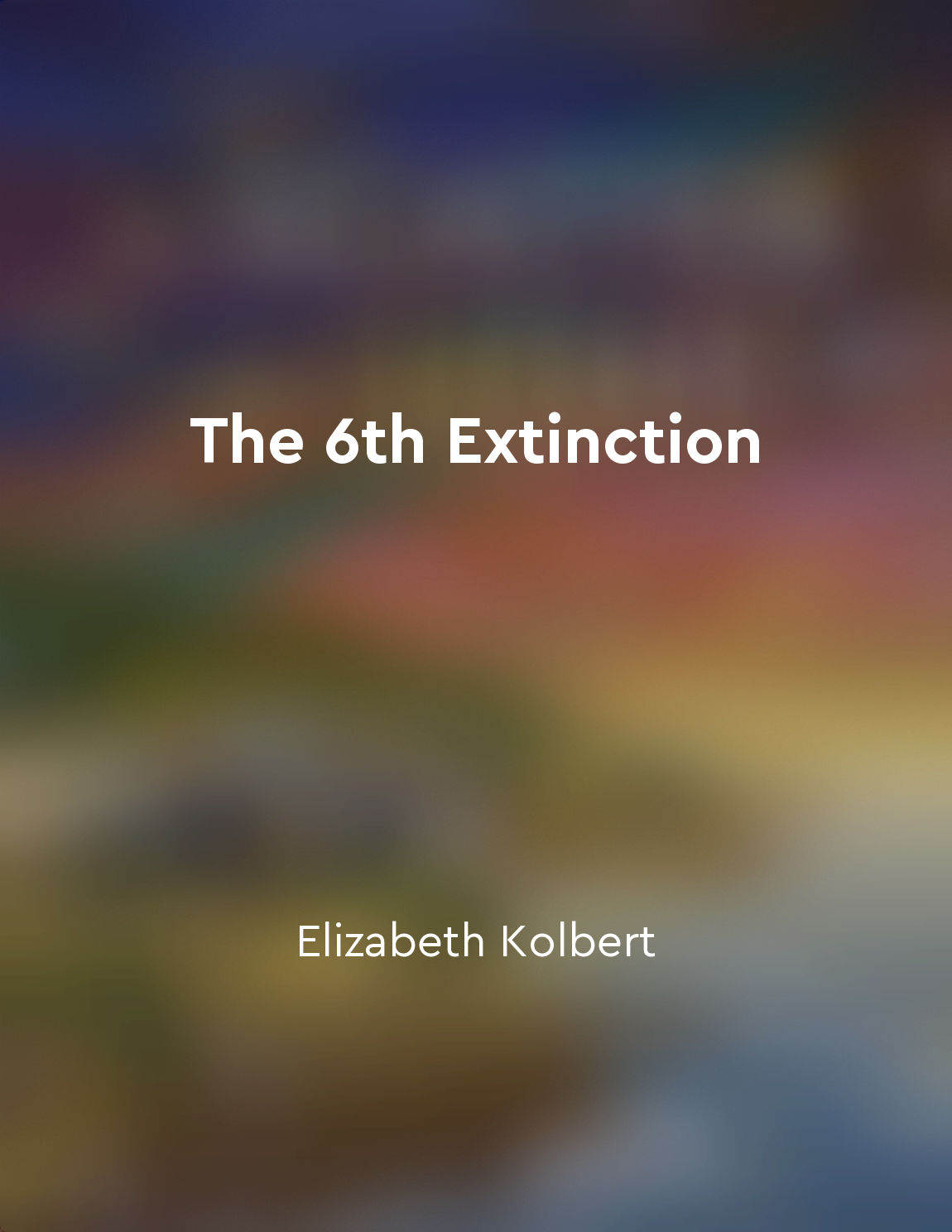Audio available in app
Extinction is a natural process, but the current rate is unprecedented from "summary" of The 6th Extinction by Elizabeth Kolbert
In the vast history of the planet, extinction has always been a part of the natural order. Species come and go, unable to withstand the changing conditions of their environment. The process of extinction is as old as life itself, with countless organisms disappearing over the eons. From the dinosaurs to the dodo bird, the Earth has seen wave after wave of extinction events reshaping the web of life. However, what sets the current moment apart is the unprecedented rate at which species are disappearing. The sixth mass extinction, as some scientists have termed it, is unlike anything the world has experienced before. The rapid loss of biodiversity is a direct result of human activities, from deforestation to pollution to climate change. These factors are driving species to extinction at an alarming pace, far faster than they can adapt or evolve to survive. The consequences of this accelerated extinction rate are profound and far-reaching. As species vanish, ecosystems are destabilized, leading to a cascade of effects that can ultimately threaten the very survival of humanity. The loss of biodiversity not only diminishes the beauty and wonder of the natural world, but also undermines the delicate balance that sustains life on Earth. In the face of this crisis, it is crucial that we recognize the urgency of the situation and take action to preserve the diversity of life on our planet. From conservation efforts to sustainable practices, there are steps we can take to mitigate the impact of human activities on the environment. By working together to protect and restore the natural world, we can help ensure a future where species can thrive and biodiversity can flourish once more.Similar Posts
Adaptation is critical
As we navigate the complexities of our rapidly changing world, one thing becomes abundantly clear: adaptation is not just impor...
Opportunities for crosscultural exchange and understanding
The increasing interconnectedness of the world in 2030 means that there are more opportunities for people from different cultur...
Sustainable lifestyles promote wellbeing
Sustainable lifestyles are not just about reducing our carbon footprint or consuming less. They are about finding a way of livi...
Ecology studies the interactions between organisms and their environment
Ecology is a branch of biology that examines the relationships between living organisms and their surroundings. It delves into ...
Cultivating resilience is necessary for survival
In the face of unpredictable challenges, societies must develop the ability to bounce back and adapt - in other words, resilien...
Together, we can make a difference
The world we inhabit is a fragile one, teetering on the brink of imbalance due to human activity. Our actions have set in motio...

The extinction of one species can lead to the extinction of others
Elizabeth Kolbert's 'The 6th Extinction' delves into the interconnectedness of species within ecosystems and the potential cons...
The stakes have never been higher
Never before in human history have we faced such monumental consequences for our actions. The very existence of life as we know...
Conservation is vital for the future of all life on Earth
The living world is a complex web of interconnected species, each playing a vital role in maintaining the delicate balance of l...
We are responsible for the fate of the planet
Humans have come to realize that they hold the fate of the planet in their hands. The actions we take today will determine the ...
